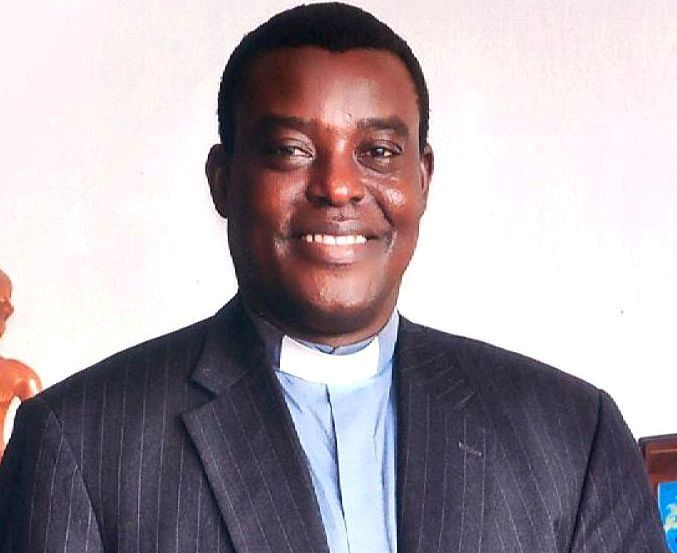In the week that University of Ibadan’s Prof Eghosa Osaghae resumes as the Director-General of the Nigerian Institute of International Affairs, (NIIA), the temptation to infer history repeating itself is simply irresistible.
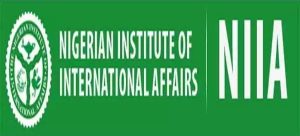 According to Lewis Obi in a Sunday Concord centre spread in the hey days of that weekly, the late General Murtala Mohammed was so angry that he threatened to close down the NIIA if they could not find a DG who could competently run the place. Obi’s tightly researched magazine had it that the NIIA was suffering from fluidity of DG. Two died in quick succession or something like that while one had to be removed because he was sleeping at an important meeting. That was what got ‘Gaddam! Gaddam!!’ Murtala angry.
According to Lewis Obi in a Sunday Concord centre spread in the hey days of that weekly, the late General Murtala Mohammed was so angry that he threatened to close down the NIIA if they could not find a DG who could competently run the place. Obi’s tightly researched magazine had it that the NIIA was suffering from fluidity of DG. Two died in quick succession or something like that while one had to be removed because he was sleeping at an important meeting. That was what got ‘Gaddam! Gaddam!!’ Murtala angry.
It was his threat that sent headhunters to the University of Ibadan, the country’s oldest and its students would insist the best too. The logic must have been a straightforward one: if Nigeria could not get a political scientist from the most established Department of Political Science to run its foremost think tank, then it was a signal that something was simply wrong. Interestingly, Murtala, Obasanjo, TY Danjuma, IBB and a few other military officers were interested parties and had been part of the NIIA audience even as they preferred to always sit at the back so as not to be too conspicuous. This is what we came to learn later.
Anyway, the headhunters went to Ibadan and came up with a US trained political scientist by name Bolaji Akinyemi. And for the next eight years, Akinyemi was there throwing down dosages of neorealism on the Nigerian foreign policy establishment. In 1983 when it was time for him to leave after two terms, he delivered his ‘Farewell to Policy’ which, by every account, is canonical if Nigeria were a country which takes itself seriously.
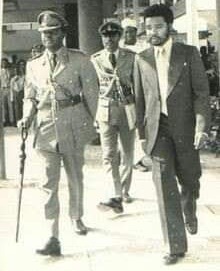
A very poor quality pix by the standards of today but a memorable outing of the late General Murtala Mohammed and Prof Bolaji Akinyemi
The comparison between Akinyemi’s appointment and Osaghae’s appointment is that each came at a time NIIA was at risk of being closed down. It is doubtful if President Buhari threatened closing down NIIA or any of these non-performing think tanks but the silence of the key think tanks at a time of immense security and social turmoil in the country must have alarmed even the least concerned senior people in government. A clean break with the immediate past might have been considered by the government and Osaghae’s emergence can be read in that sense. It might even be a signal that the government is, at last, about to unleash crack professors as heads of the five or so leading state owned think tanks.
The second comparison of Osaghae’s appointment with Akinyemi’s is Nigeria’s return to UI to seek a resource person to run its leading think tank. There is a patriotic trend to be happy about in that compared to when people with either wrong intellectual or ideological backgrounds got strategic appointments. It is unlikely that anyone, certainly not in academia, will oppose Osaghae’s appointment. There will hardly be any reasons for that. ‘He has got the pedigree’ is how a senior academic puts it.
What remains to be seen is how the process of returning the NIIA to centrality in the management of national security will proceed beyond the appointment of a well heeled DG. That is important but there is also something called willing the end but denying the means. It is easy to bash past DG of the leading state owned think tanks in Nigeria for non-performance without checking two things. One, what resources did the government oblige them and two, does government operate in a manner that shows it has any need for research?
It is inconceivable that any government can do without research in the world today. It is unimaginable that the Department of State in the US or the Pentagon can do without the Council on Foreign Relations, (CFR) for a prolonged period. Or that the Foreign and Commonwealth Office in the UK can ignore Chatham House, RUSI or the leading UK universities for a long time. This is not because the UK, US, China are global powers. It is that they know what each of these institutions must input into the system for it to be the system.
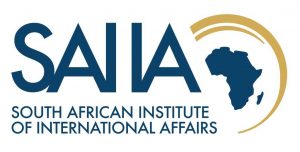
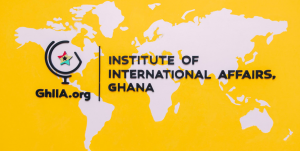 So, when Akinyemi, for instance, and most other Nigerian Ministers of Foreign Affairs talk of tussle between the Ministry of Foreign Affairs and the NIIA, it must sound quite strange to other ears. All manner of tussles go on everywhere in the world but lines are also quickly drawn. There is no basis for competition between MFA and NIIA.
So, when Akinyemi, for instance, and most other Nigerian Ministers of Foreign Affairs talk of tussle between the Ministry of Foreign Affairs and the NIIA, it must sound quite strange to other ears. All manner of tussles go on everywhere in the world but lines are also quickly drawn. There is no basis for competition between MFA and NIIA.
It is possible that even degenerate Nigeria has come to terms with this, considering the number of scholars in government now. As at today or with Osaghae’s appointment, three of the top 10 political scientists in the country are now in government. This does not say anything about Economists, Sociologists, Psychologists, Historians, lawyers and so on. That again is something to be happy about because, for long, the tradition of intellectuals of statecraft was missing in Nigeria. Most intellectuals conceived of the state as a space to be avoided. But it is not the state that is to be avoided. A particular scholar could decide against working with a particular government for ideological or whatever reasons but avoiding the state is not it because the state is a space of actions, not its totalizing conception as an instrument of some class.
The circumstance in which Akinyemi successfully ran a model of NIIA would be considered completely different from today when the country is highly fragmented and shouting at each other without a moderator. But, who knows? That is even where the new NIIA might even want to take – off from in an age when the foreign/domestic binary is all but gone from the theory and practice of materializing a nation in postmodern geopolitics and its information spectacle!
May his road be rough, eh!

